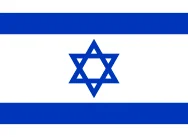

According to the regulation by virtue of the Wireless Telegraph Ordinance [new version], 1972 (hereinafter – the Ordinance), the manufacture, trade, installation, operation or possession of a wireless device are operations that require a license from the director – an employee of the Ministry of Communications in charge of radio frequency management.
Amendment No. 6 to the Ordinance, in section 9 of the Economic Plan Law (Amendments to Legislation for the Implementation of Economic Policy for the 2019 Budget Year), 2018, established three regulatory tracks for wireless devices: a licensing track, a track for obtaining approval, and an exemption track from the ordinance.
Pursuant to section 4T of the Ordinance, the import and manufacture of wireless devices, of types determined by the Minister of Communications, do not require a license, and instead an importer or manufacturer will be required to obtain a certificate of conformity (hereinafter – conformity certificate route). Other actions such as possession, operation and trade in the wireless device that has received approval for adjustment will be exempt from the provisions of the Ordinance regarding frequency allocation, license obligation or payment of a fee.
In addition, such a device uses frequencies that the Frequency Committee, which is the body authorized to designate and allocate frequencies in Israel under the Ordinance (hereinafter – the Frequency Committee), allocates to the general public, subject to the conditions set out in the First and Second Schedules, and is therefore not protected from wireless interference by other users. In addition, such a device is prohibited from lawfully interfering with other users.
The demand for radio frequencies has intensified in recent years, with the development of wireless applications in various fields – civilian, commercial and security. Along with easing regulation in the form of switching to a matching confirmation route, and granting an exemption from licensing as detailed above, and in order to enable efficient and optimal utilization of the frequencies while “living together” by the various users, it must be ensured that wireless devices manufactured in Israel or imported in increasing quantities For communication systems and lawful users – by setting technical conditions and restrictions as specified in the first and second appendices to the proposed regulations.
The purpose of the proposed regulations is therefore to anchor a detailed arrangement regarding the route of compliance approvals, to stipulate various obligations to be imposed on importers and manufacturers in addition to the regular regulation in Article B of Chapter C of the Ordinance, such as document retention and product labeling obligation. It is also proposed that the regulations determine, in the first and second appendix, the list of conditions that a wireless device that meets will be included in the compliance certificate route (replaced by the licensing route), detailing spectral features and characteristics, the typical uses of the devices, restrictions on device use, etc. Of the Frequency Committee.
It is proposed to divide the field of importing wireless devices that require suitability certificates into three types: import for personal use, commercial import and one-time commercial import, due to the differences between the different types of import in the importing entity’s expertise. For individuals who import devices for their own use. The three types of import differ from each other in a number of criteria – the purpose of the import (for personal use, market testing or marketing), the number of devices allowed for import, the period of validity of the permit granted, the level of details required to submit a certificate to prove compliance of the wireless device. In provisions relating to consumer or marketing aspects.
Confirmation of suitability for self-use import devices and disposable commercial import devices will be given in the suitability approval route by the Director (under section 4K of the Ordinance), according to his examination, and not in the automatic declaration suitability route by declaration (under section 4J of the Ordinance).
To complete the picture, the existing regulation regarding the route of detailed compliance approvals under the conditions set by the Minister of Communications in section 1A of the Wireless Telegraph Order (non-applicability of the Ordinance) (No. 2), 1982 (hereinafter – the Wireless Telegraph Order), along with provisions set forth in Article B. Chapter C of the Telegraph Ordinance The proposed regulations will replace the relevant provisions in the said order, and it is proposed that it be amended accordingly. An amendment to the Wireless Telegraph Order is published in parallel with the draft of these regulations.
360Compliance provides Testing & Certification for type approval services and global market access in 195 countries. With proven expertise in worldwide regulations, 360Compliance can help your company shorten time to any market, minimize risks and manage the regulatory process from A-Z.
You may also be interested





